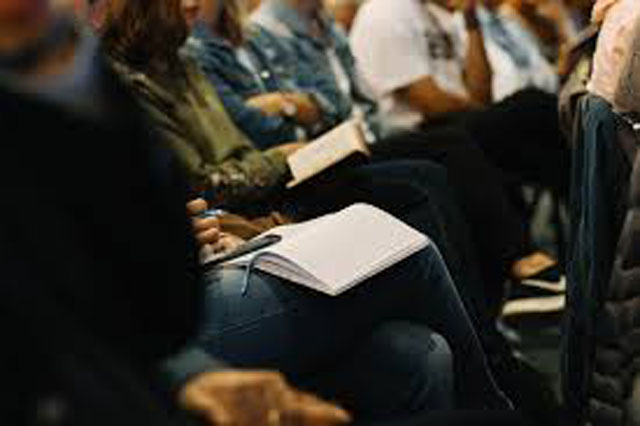
For all Australians, 2019 is when we will be heading to the polls to elect who we want to represent us in Federal Parliament. Some states this year will also have an election as well. It seems that every year, there is an election of sorts to be held. Whether a local council election, state election, a by-election or a Federal election.
With elections come the debate and discussion of policies, and in turn, politics.
Whenever political topics are brought up, they come with emotion, debate and controversy. Some people may be deeply passionate about certain issues, and others can be very vocal about them. It seems sometimes we are forced to make a choice between one side or the other, especially when we are being told some things are issues of morality.
A lot of us might be clueless or just haven’t had the time to read, learn more and investigate on some key topics or issue. How does one, who might not have enough understanding or awareness of political issues, navigate these debates and elections in order to make an informed decision of who to vote for? Should we even bother trying to learn more about this, when it seems quite complex and difficult?
Should Christians participate in society?
To approach this, we should first look at the question of “should Christians participate in society?” and what the Bible says about it. The Bible talks about the concept as Christians being the “salt and light of the world” and “…shine before others, that they may see your good deeds and glorify your Father in heaven.” (Matthew chapter 5 verses 14-15).
This concept of light that Jesus is referring to is the message of God’s grace for us in the Gospel that has been given to us. It carries the greatest gift of bringing people from the kingdom of darkness to the kingdom of light.
This light is not something that we should keep for ourselves, but rather something to display and share with others. Paul’s letter to the Ephesians emphasises this and explains that Christians should “Have nothing to do with the fruitless deeds of darkness, but rather expose them.” (Ephesians chapter 5 verses 8 to 12).
It implies that the role of the Christian is not necessarily only to share the Gospel with others, but also to expose darkness wherever God has placed us in our lives. We do this to bring the grace of God to others and for God’s glory. It means that we cannot simply isolate ourselves from the rest of society, but rather, we should be as active in society as our circumstances allow. The goal should be bringing the message of the Gospel to the lost so that they may be saved.
Our unique opportunity
Many churches are correctly focused on the task of telling their friends and communities about Jesus. However, I wonder if there is something some of us can do more when it comes to our participation in the public, and in turn, political sphere. The Australian government is a representative democracy which has a system for citizens to voice concerns of issues happening in our local societies. This is different in each country, and by God’s grace, we are blessed to be able to meet freely without worry of persecution from our government authorities.
In other countries that do not have a Judeo-Christian influence or laws based on Judeo-Christian philosophy, Christians are either persecuted or not permitted to meet in public locations and tell others about Jesus.
What we have in Australia is a very unique opportunity in history! It should not be something that we waste. To participate in our government, our P & C or local communities, it does require us to be well read and thought out on the issues being discussed, and unfortunately, we cannot simply read the news to be informed as they might not always cover every key aspect or perspective about the issue.
Navigating the minefield
When we are presented with an issue on the news or in our conversation with friends and family, we should first be honest with ourselves about whether or not we really know about the topic. If we do not, it is better to acknowledge this and potentially commit to reading and learning more before engaging further in conversation.
When engaging in conversation and debate, we should seek to be loving and respectful in how we convey ourselves and make every effort to be quick to listen and slow to speak. At the same time, we should also not compromise when it comes to core Biblical principles as they are our foundation to faith and how we live our lives in this world. Where possible, we should also seek to find common ground because a lot of the time our differences only lie in the execution of an idea.
Over time, let us build our knowledge in different areas of politics and societal issues. Whether it is on economic management, mental health, immigration, housing affordability, energy, climate change or whatever hot topic issue of the day, let us become all things to all people so that by all possible means, we may save some to Christ. (1 Corinthians chapter 9, verse 20-22).
 Brandon Tsang is a Sydney-based writer currently working in IT. He studied Marketing and Economics at UNSW and loves to spend his spare time hiking, playing volleyball or watching Netflix.
Brandon Tsang is a Sydney-based writer currently working in IT. He studied Marketing and Economics at UNSW and loves to spend his spare time hiking, playing volleyball or watching Netflix.
Brandon Tsang’s previous articles may be viewed at http://www.pressserviceinternational.org/brandon-tsang.html

Brandon Tsang is a Sydney-based writer currently working in IT. He studied Marketing and Economics at UNSW and loves to spend his spare time hiking, playing volleyball or watching Netflix.
Brandon Tsang’s previous articles may be viewed at http://www.pressserviceinternational.org/brandon-tsang.html